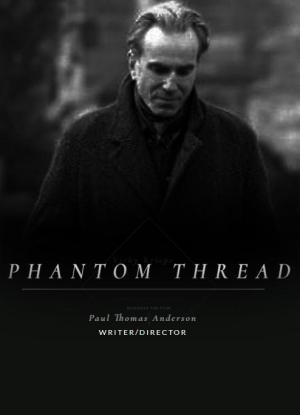
• In my opinion, this is Paul Thomas Anderson's (PTA) best film behind There Will Be Blood and Punch-Drunk Love, although this may change with future viewings.
• It is easily PTA's most accessible film since There Will Be Blood (perhaps even moreso due to its shorter length). In comparison to The Master and Inherent Vice, which were rather dense, narratively, it is a very (ostensibly) simple and gentle film, and refreshingly delightful.
• This film easily passes as a dark satirical comedy. Or maybe even just a comedy. The audience at the cinema were laughing continuously throughout the film. The humour is very understated, and it seems to, at times, emulate Kubrick and Barry Lyndon. I personally loved PTA's approach to comedy.
• In the first half of the film, I was not too fond of Daniel Day Lewis' performance. I mean, it was great, but not incredible. But, surprise, surprise - I was fooled. It dawned on me halfway through that this is a very intimate, deceptively simple and incredibly nuanced performance. Daniel Day Lewis is not playing the President of the United States, a cupid oilman or a pathological murderer here, but an everyday man who has very real and very human flaws.
• The film is like a sister-piece to Punch-Drunk Love. At its heart, it is a romantic film, and an intimate character study about an insecure, emotionally detached man in desperate need for love and companionship.
• I'd say this film is actually PTA's most poignant. There is one scene in the film that nearly had me in tears. In fact, multiple scenes were moving, thanks in large part to the subtlety and honesty of Daniel Day Lewis' performance.
• As you would expect, the photography is beautiful. Even though the cinematography was very much a collaborative effort, it had a homogenous and coherent sensibility. The framing was impeccable, and very reminiscent of Kubrick, Ophüls and Hitchcock at times.
• I can see why this may be Daniel Day Lewis' last performance. While it doesn't have the same level of scope or raw energy as some of his other performances due to the nature of the characters, he arguably went to a very sad and dark place to bring Woodcock alive.
• The score, by Jonny Greenwood, was lovely and very distinguished. I hope he gets an Oscar for his work on this film.
• The film really encapsulates what I love about PTA's filmography: it feels very human, very relatable and very sincere. The characters are empathetic, even if they may come from a different time and place.
• I would love to see another satirical piece from PTA in the future. As mentioned, this film reminded me of Barry Lyndon in its observations of upper-class culture and behaviour. It was funny yet restrained.
TLDR - A very solid film that I suspect will benefit more on rewatches. 8/10 if I had to issue out a numerical rating.
Last edited by Matteo; 01-25-18 at 09:06 AM.



 The total shift in Woodcock's state of mind was unbelievable, and also likely kept the film from getting higher ratings. The established serious tone of the movie did not lend itself to an artsy ending. The nice chord progression suddenly went into another key.
The total shift in Woodcock's state of mind was unbelievable, and also likely kept the film from getting higher ratings. The established serious tone of the movie did not lend itself to an artsy ending. The nice chord progression suddenly went into another key.